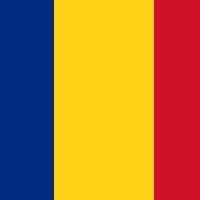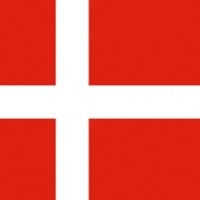Top Ten Most Useful Languages to Learn
Rated by:1. Number of speakers: With how many people in the world can you communicate with this language, including languages that are similar.
2. Geographical distribution: Over how many lands is this language spread/in how many parts of the world can you use it.
3. Cultural and historical significance: can you use the language to understand scientific words/is the language important for a certain culture
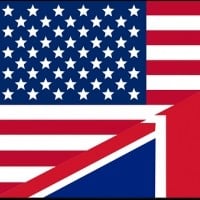
Beside being today's most important language of international communication, it is also the language of the perhaps biggest former colonial empire with both a big number of native speakers and countries all across the globe.
Regions:
Native language: E.G. british Isles, North America, Caribbean, South Africa, Oceania, Singapore
Administrative language: E.G. Eastern Africa, South Asia
English is not only the most important language for international communication but also the language of the biggest former colonial empire. It's many words of Latin origin allow you to understand scientific words as well.
Regions:
Native: Britain, Ireland, North America, Caribbean, South Africa, Oceania, Singapore
Administrative: East Africa, South Asia (...)
Fields: politics, economy, computers, internet, music...
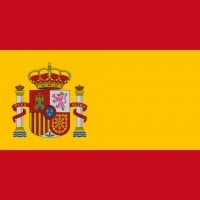
The biggest colonial empire after Britain, or maybe even just as big as Britain or bigger than Britain. Actual number of native speakers has surpassed that of English. With Spanish, you can also understand Italian and some other romance languages, as well as scientific and other international Latin words.
Regions: Spain, almost the whole of America, and even southern USA.
I am a native English speaker, so I'm going with Spanish because there are millions who speak it around the world. If I hear a foreign language, it's usually Spanish. Very rarely, I will hear people speaking German in the U.S. but that's it! We should all know some Spanish.
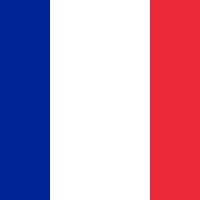
Number of speakers: not so big, but distribution is quite big through colonial empire. Culturally very important either to induce scientific Latin words or because of being the language of the dominant culture of Europe from 17th century until first half of the 20th century (together with Britain, most modern inventions setting of fashion trends together with Italy, cuisine etc.). The language of the nobility and diplomacy.
Regions: France, Belgium, almost whole of northern and western, also central Africa, Haiti, Guyana, Canada.
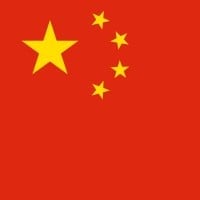
Biggest number of speakers and its economy is on route to be the biggest in the world. I am currently learning Chinese and it isn't as hard as people say it is. A lot of experts say that Chinese is the language of the future and that demand for Chinese speakers is only going to get higher. It is a great language for business and it sounds great in the ears.
The biggest number of speakers in the world, big diaspora in Southeast Asia and many other countries.
An important language of East Asia through the script but a big disadvantage is that you can't understand any international or scientific words with it.
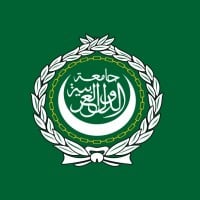
It's a beautiful language with many dialects and muslims speaking it. Since so many different people are speaking it, it may give you opportunities you never even knew existed.
Considerable number of native speakers spread over a vast territory. Culturally and historically an important and/or respected language in Muslim countries, from western Africa to southeast Asia.
Regions:
Native: North Africa, West Asia
Culturally important in: West Africa, Sahel, Horn of Africa, Turkey, Persia, Central Asia, Pakistan, Indonesia.
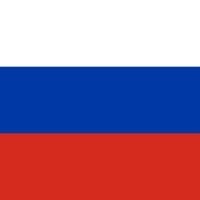
The times when Russian used to be second most important language of the world because of the Soviet Union are over, but it is still among the top 6. Numbers of speakers is not among the biggest, though still quite big. Culturally not so important, but still very important through Russia's strong political role and the distribution across a vast territory.
Regions (native, administrative and culturally related): Russia, Belarus, Ukraine, Baltic States, Central Asia, Georgia, Armenia.
Norwegian is not only a useful language but it's also easy and very fun to learn.
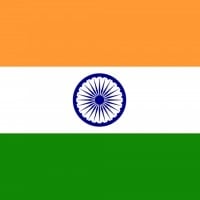
I think this is probably very important, given that India has overtaken China's population. If things keep going the way they are, Chinese languages (Mandarin, Cantonese, Yue, etc) will soon be inessential and this will be more important.
Native or administrative language of a giant number of speakers. Can be used for communication in India, Pakistan, Nepal. The only reason why it isn't a UNO language as well, is probably that these countries have English as an administrative language, too.
Hindi is one of the most useful language in India. I know a few elitists are going to claim it is Urdu but Urdu is used nowhere instead of sher- o- shayari and qawwali. Al political discourse, scientific discourse and intellectual discussions happen in Hindi. Most people in India do not know what science is in Urdu, but we know it is vigyaan in Hindi.
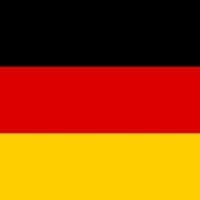
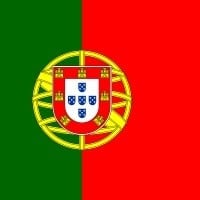
Another language of a big former colonial empire with speakers in many parts of the world, though not as many English or Spanish.
Regions: E.G. Portugal, Brazil, Angola, and Mozambique.
The Newcomers
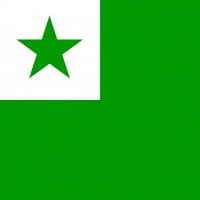
Esperanto is the international language. It is designed to be just that and truly deserves its purpose of becoming a world lingua franca. Why? Because:
1. Esperanto is an artificial language, free from national/ethnic origin, without the baggage of culture, politics, nationalism, and imperialism. The problem with having a language of national/ethnic origin as a lingua franca is that it creates a dominance sphere for only those who speak it natively. Others are left out and considered inferior, and they are forced to learn the dominant language while those who happen to be born as native speakers of the "dominant" language don't need to learn another language. (This is on a global perspective. I believe national standards should be followed. If you want to live in a nation where a language is spoken, you should respect that and speak their language to allow you to fully integrate into their society). It can also endanger other languages and their culture. Esperanto doesn't have that problem, and the fact that it doesn't technically belong to any nationality/ethnicity makes it a language for the world and of the world.
2. Esperanto is, by design, a really easy language to learn. It has no exceptions, and all words are pronounced literally. Many languages we know of do not have that quality. Because Esperanto is a big mix of Romance, Germanic, and Slavic vocabulary and has a simple grammar structure, Esperanto is one of the easiest languages for anyone to learn.
3. Native English speakers will finally become bilingual!
Lernu Esperanto estas bone
It's great to learn it. It makes it easier to learn other languages and a lot of people speak it in southern India, especially Tamil Nadu.
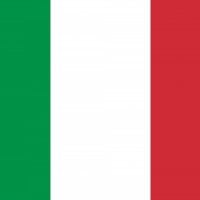
Even though Italian isn't that spoken in the world today, it is still the fourth most learned language in the world after English, French, and Spanish.
The language is rapidly increasing with around 4.8 million people adding on to the total number of speakers. The language is also used as a commercial language in former colonies like Libya, Eritrea, Somalia, and Ethiopia. Italian is also very common in Argentina with around 1.5 million speakers which is the same number of people as 4 Iceland. This is why Italian in my opinion is a very useful language.
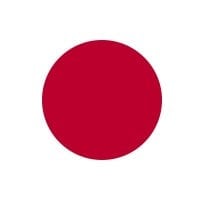
Not only does this beautiful language have 128 million native speakers, but learning Japanese gives you access to its beautiful culture and one of the most influential pop cultures in the world. So if you want to enjoy your favourite anime, manga, and JRPGs in their native tongue, this is the language for you.
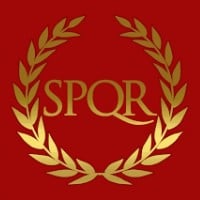
Considering this is a dead language, Latin should be a bit lower. It is not really practical since most people in the world don't speak it unless you are in the Vatican, or you're deciding to be a teacher, excel in law, science, or if you want to straight up study the history of Rome. Otherwise, it is somewhat essential into knowing some parts of the romance language if you get a good grasp of it, but generally aiming for that goal is still not practical, but learning Italian first is a much more easier language as it will give you more of an understanding of Latin since it is one of the closest language as of that language; don't let this stop you though - if you are learning for the sake of fun, go for it.
Very useful if you want to literally to know the English lyrics of Gangnam Style. Like pyeongyoja prounounced (pong-yo-ja) At the first chorus stanza, you'll hear it 60 nanoseconds in the music video because he dances Gangnam Style in the building literally means in the Romanized Korean English translation, let's dance my friend!
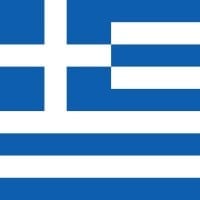
It is now part of the most useful language all over the world and most especially Nigeria as a whole.
It may not seem useful to you, but so many people don't have any other option. You'd have good job opportunities where you actually help people
Since ASL is the most spoken version of sign language, I would definitely recommend learning it! You would be able to talk to people that can't hear too well.
More than 200 million people speak Indonesian. It is very useful, because when we go travel to Indonesia, we will find better communication. Seriously, this country is so beautiful! It is the largest archipelago country with a lot of amazing places to visit! :)
Indonesia is going to be the greatest country in several years, so get ready and learn Indonesian language.
A considerable number of native speakers in Turkey and can be used for communication throughout Asia from western Asia to the uyghur region in China.
Regions: Turkey, Azerbaijan, Turkmenistan, Uzbekistan, Kazakhstan, Kyrgyzstan, Uyghuristan (China)
